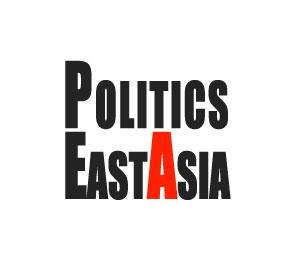Digital politics
In this interview with Taiwan's cyber-minister Audrey Tang, Florian Schneider discusses participatory politics, social technology, and the legacies of the Sunflower Movement.
What roles do digital technologies play in the construction of national sovereignty? Who gets to shape the meanings of 'homelands' and 'territories' in the East Asian region? Join us for an online discussion with students from Leiden University.
How powerful are platforms in the East Asian region and beyond? How does platform power reshape society? These are the questions we are debating in this online discussion with students from Leiden University.
In this discussion, Leiden University grad students debate how nationalism fairs when it is updated for the information age.
In this discussion, our graduate students at Leiden University take a look at China's search engines and their role as knowledge filters in the PRC.
As Asia scholars, digital research methods can provide exciting windows into the topics we study. But what counts as 'data', how can we get access, and what are the ethical and practical pitfalls of studying the digital, for example in the case of digital China?
This article examines how Chinese websites shape online discourse on two Japan issues (the Nanjing Massacre and the East China Sea conflict), and what these sites can tell us about the leadership’s strategy for managing digital communication. It finds that the authorities apply a Leninist mass-communication logic to the web, turning the internet into an 'info-web' that brings digital media into the fold of China’s ‘traditional’ mass-media system.
Where might we find ‘Digital Asia’? This article examines the online presence of higher education institutions in Greater China, showing how it can be fruitful to search for 'Digital Asia' in its communication networks and digital interfaces.
This introduction to the 2015 special issue of the academic journal Asiascape: Digital Asia discusses the contributions to the special issue theme "Where Is Digital Asia?"
This video picks up on a debate I recently participated in at Leiden University, during the Leiden Global Day on 27 November 2014, where we discussed the complex factors that shape how we use digital tools in our societies today.
On 24 & 25 January, we invited leading scholars to join us at Leiden University to revisit the emancipatory potential of digital media in Asia and discuss the digital turn in Asian studies. Read more about the discussions and ideas that accompanied this Asiascape: Digital Asia event.
Does the Chinese government with its Internet controls make full use of the potentials that digital communication networks hold? This post looks at the PRC's "Chaoyang model" of managing information flows, which is very much the same model that has informed media management in China throughout most of the 20th century.
What does the "digital turn" mean for scholarship and teaching in the arts and humanities? This post discusses the trend towards "digital humanities", the criticism that this trend has created, and the ways in which digitally informed scholarship can address such criticism by honouring the humanist tradition of philosophers like von Humboldt.
The academic journal Asiascape: Digital Asia (DIAS) welcomes scholars from the area studies, communication sciences, cultural studies, humanities, and social sciences, as well as from multi-disciplinary backgrounds, to this international conference on digital media in Asia.
Introduction to Asiascape: Digital Asia, a new peer-reviewed academic journal that explores the political, social, and cultural impact of digital media in Asia. Bringing together inter- and multi-disciplinary research in the social sciences, arts, media and communication studies, information and computer sciences, and area studies, the journal examines the role that information, communication, and digital technologies play in Asian societies, as well as in intra-regional and transnational dynamics.
China has more internet users than the EU has citizens. This has created a vibrant online sphere, but also forums for nationalist sentiments. Focusing on Sino-Japanese history, this project analyses how nationalism works in an emerging Great Power’s digital networks.

